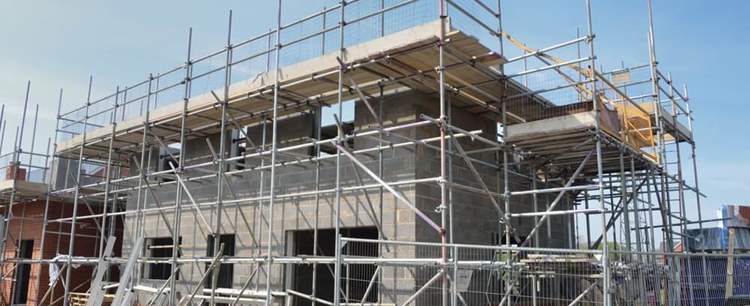More housebuilders and developers have agreed to fund the cost of removing dangerous cladding on buildings between 11m and 18m tall – rather than using public monies to do so.
Elsewhere, UK property news is dominated by the unprecedented performance of the housing market, which sees records tumbling as prices continue to climb. This, against a background of creeping inflation.
Housebuilders set aside more money to fix dangerous cladding
Housebuilders Crest Nicholson and Taylor Wimpey have together pledged a further £200 million to remove and fix dangerous cladding on homes they have built in the past 30 years, announced the Daily Mail newspaper on the 5th of April.
The two companies have already committed a combined total of £313 million for such works but the latest round of pledges comes in response to government pressure for developers themselves to fix failings for which they are ultimately responsible rather than relying on funding from the public purse.
The building industry and government have jointly agreed guidelines on remedial works to the cladding on buildings between 11m and 18m high since the Grenfell fire disaster that claimed the lives of 72 residents of the tower block in 2017.
By voluntarily agreeing to cover a proportion of the expected costs, developers have avoided alternative demands by government that they contribute to a £4 billion remediation fund.
Confused landlords given advice by agent over EPCs
An estate agency claims that many of the landlords with whom it does business are ignorant about the steadily stricter energy performance certificates (EPCs) that are coming into force, revealed Landlord Today on the 6th of April.
As part of its commitment to “greener” energy efficiency, the government has included in its Minimum Energy Performance of Buildings Bill – currently making its way through Parliament – a requirement for all new tenancies in dwellings in the private rented sector to achieve a minimum C EPC by 2025 and the same standard to be reached by every tenancy by 2028.
Leeds estate agents HOP, however, claim that many of the landlords they talk to are unaware of the planned requirements even though these are likely to have an impact on the types of let property in which they might invest. HOP urges its clients to seek expert advice about the potential impact of enhanced EPC standards when investing in buy to let property and has launched its own EPC Consultation Service to that end.
How does rising inflation impact the housing market?
Against the background of government concern and media reports about inflation within the UK economy, the online listings website Zoopla on the 5th of April published its thoughts on the way in which rising inflation affects the housing market.
It argued that inflation:
- tends to slow down the growth in average house prices;
- potentially, makes it harder to secure a mortgage;
- you might decide to delay buying a house unless you have confidence in being able to meet a more expensive cost of living and higher mortgage rates; and
- if you are planning to sell a property, it is probably better to act now, before inflation reduces the current buoyancy of and activity in the housing market.
Housing market grew by £1 million a minute in 2021
Any inflationary impact on the housing market is likely to be felt simply because of its current strength – as illustrated in a story by Todays Conveyancer on the 5th of April.
In 2021, as Britain emerged from the lockdowns and relative stagnation imposed by the pandemic, there was a property boom that accelerated to the extent that the total value of the housing market was growing at the rate of more than £1 million a minute.
The effect of that growth was to see the total value of the country’s housing reach £6.7 trillion – an increase of some £569 billion in the space of a year.
This was fuelled by increased mortgage debt, of course, but for every £100 of new borrowing, mortgage holders gained £869 of additional equity. The effect of this increased level of ownership resulted in a 77% equity share in the average home – the equivalent of £207,470.
Halifax house price index
The continued strength of the housing market was confirmed with the publication on the 7th of April of Halifax building society’s latest house price index:
- average house prices across the UK reached a further record high of £282,753;
- the report for March revealed that house prices continued to grow – at a monthly rate of 1.4%, the biggest increase in six months;
- since the initial pandemic lockdown in the spring of 2020, average house prices have increased by £43,577; and
- the southwest of the country has now outstripped Wales as the region with the fastest growth in prices.
Halifax warns that inflationary, cost of living increases will also affect the housing market during the course of this year and that is likely to slow down further growth in house prices.






